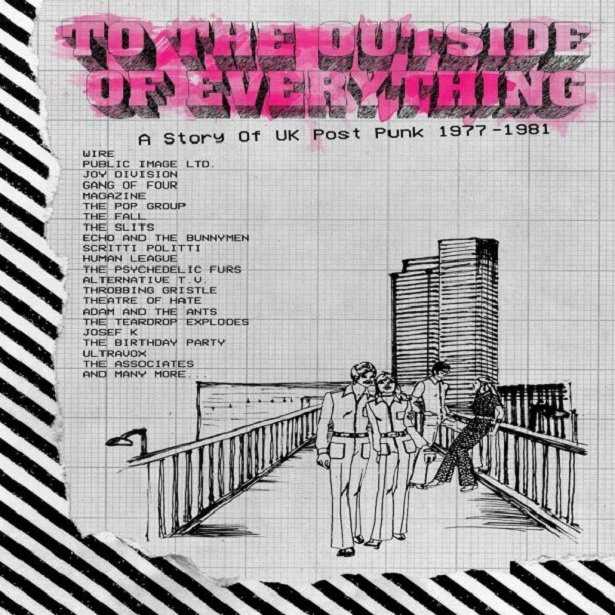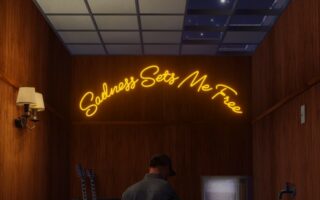
Like the genre preceding and to which it owes its handle, post punk continues to broadcast a legacy which far outstrips the limited commercial and critical recognition earned at the time – a period roughly between 1978 and 1980.
If today the direct lineage between LCD Soundsystem and Radiohead is difficult to draw with say Crispy Ambulance or Spider King, this may be because of its scions only Joy Division have attained the sort of frozen, iconic status in their own right that confers musical immortality on anything caught in its halo.
To The Outside of Everything is post punk, over a hundred tracks strung across five CDs that attempt to tell the story, at times, through sheer volume of material. Every tale has to have a beginning of course; in this case it’s with pioneer Howard Devoto, who left the Buzzcocks at their peak to form Magazine having recognised that punk’s musical ligatures would quickly strangle any hint of creativity, in the process taking dozens of like minded artists with him.
Completists would be outraged if for that reason alone Magazine’s Shot From Both Sides – released in January 1978 – was missing from any collection like this. It features a template much aped right up to this day, but even in its now familiarity these broad strokes still herald the troubled birth of a splinter group from which the host would never recover.
Despite being more ideologically driven than its primitive cousin, the vast go anywhere umbrella post punk enabled would also go on to inform Paul Morley’s ‘New Pop’, a number of acts featured here spilling eventually into the charts after diluting their weirdness, with both Adam & The Ants and The Human League latterly scoring multiple number ones in an age when it still mattered.
Don’t expect Ant Music or Sound Of The Crowd though – To The Outside Of Everything revels in the underground, restricting more recognised faces to early singles, applying equal focus to those who either had no interest or no ability to make commercially appealing music. Amongst this more interesting cabal are the likes of Swell Maps, Fad Gadget, 23 Skidoo and Josef K, all of whom on examination wield a disconnected spell over bands more modern, whilst gluttons for the obscure will no longer have to wander round their local Oxfam searching for vinyl by The Disco Zombies or Dif Juz.
As ever with these exercises, there’s still some subjective fun to be had in spotting what should be considered glaring omissions. For instance, there’s no place for Cabaret Voltaire’s proto industrial Nag Nag Nag, and given how the movement’s informed perspective re-appraised the role of women and gender roles it’s perhaps surprising that neither Toyah Wilcox or Lene Lovich feature.
Those are minor points of course, but perhaps it’s more appropriate to consider some of the fundamentals. When faced with another hundred-track-plus collection of 20th century songs which, by and large, not many heard, fewer bought and even less remember, do we not first ask ourselves why? What is our reason for wanting? Are we being archivists? Do we crave discovery, need to be entertained? Or this simply a case of bolstering our cool points?
The problem is that post punk didn’t want to be loved. It actively chose to reject songs about conventionally presented emotions, preferring the sociopathy of isolation, conflicts of the mind, a landscape inspired by writers such as JG Ballard, Kubrick’s A Clockwork Orange and the surrealist art-terrorism of Dada. Sure, it helped young musicians to finally set aside the cloying paradigms of rockism, but do we need to listen to Occult Chemistry to learn this? What more possibly is there to conceive about this piece of history that isn’t captured already in Simon Reynolds’ definitive biography Rip It Up And Start Again ?
To The Outside of Everything is surely as far as anyone other than the utterly committed will want to dig, an encyclopedic take so eruditely compiled that for about thirty quid you can own post punk in totality as you would buy a painting, or a sofa. The protagonists might see that as art being commodified by time and accessibility, or they might not care.
Either way, three tumultuous years of vital British music culture is yours, all for the price of a bottom of the range toaster. Which somehow fits.





